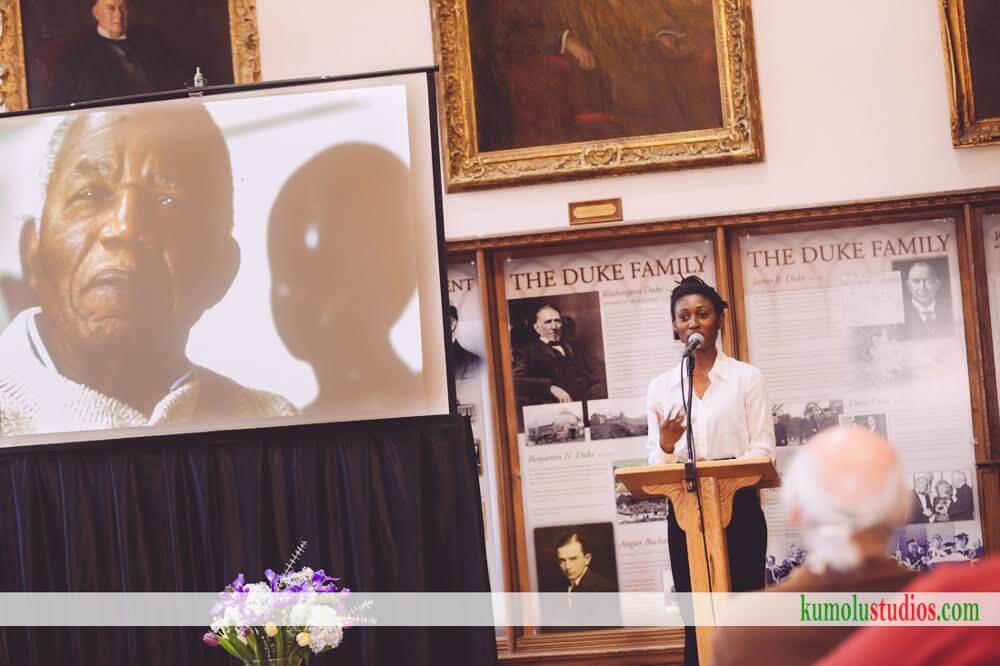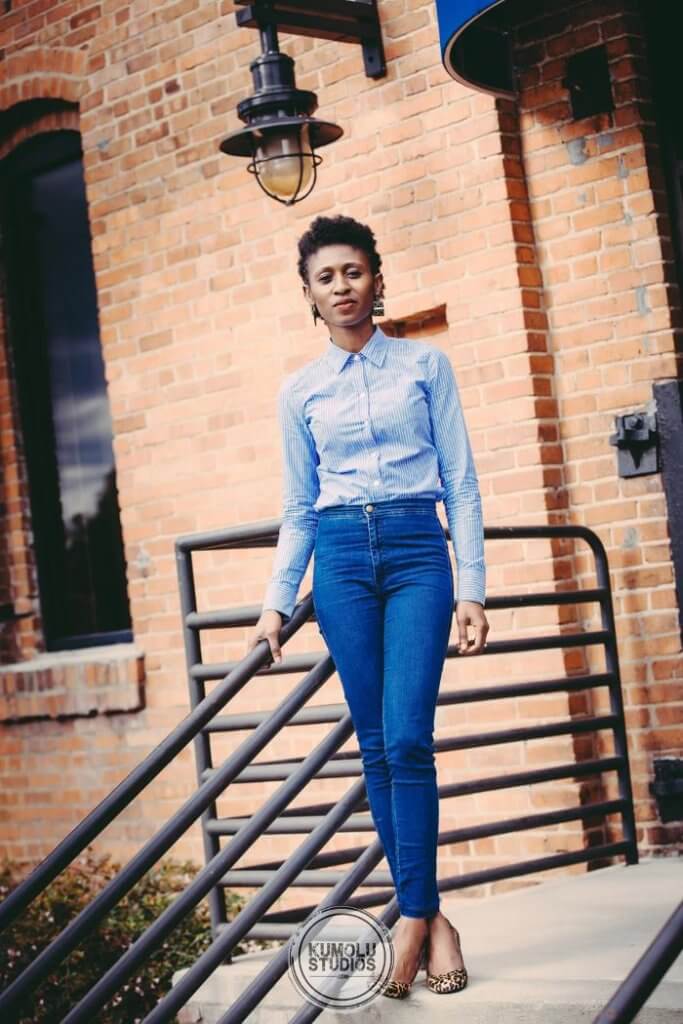Ainehi Edoro is the founder and editor of Brittle Paper, a literary blog for fans of African literature. She holds a doctorate in English from Duke University and recently joined the Marquette University English faculty as an Assistant Professor.
We had a virtual chat with Ainehi and she talked about how her interest in literature began, its influence in her life, what she’s learnt and how she’s using Brittle Paper to share that knowledge globally.
For Creative Girls: Your background in literature is quite admirable. What got you interested in literature? Why did you decide to study literature for your higher degree?
Ainehi Edoro: I love stories. I think they are fun. I read poetry. I think it’s beautiful. But I also really enjoy reading things people say about the stories they read and poems they love. That’s something that has always fascinated me. After the poet and the fiction writer produces beautiful work, what does it take to convey the beauty of the work to the reader? This aspect of literature is called literary criticism. At some point in my intellectual journey, I wanted to be part of the community of thinkers specialized in sharing with the reader what is beautiful about a literary work, so I decided to study literature as deeply as I could.
How and why was Brittle Paper started?
In the summer of 2010, I had just completed my first year as a PhD candidate at Duke University. I was exhausted from the work, the research, and the sheer amount of reading I’d done for the past 9 months. I loved every bit of the intellectual rigor, but I was at a point where I wanted something different. I wanted a space were I could play with ideas and also where I could recycle some of the complex concepts I’d been learning in the classroom for a broader audience. That’s how Brittle Paper came into being. In 2012, I rebranded it as an African literary site, in part, because I realized that African literature urgently needed to be adapted to an online/social media environment.
What are the challenges that come with Brittle Paper’s focus on the African literary experience? What hindrances have you come across since it’s inception? And how were you able to overcome them?
Focusing on the African literary experience has been a huge plus. There is an unprecedented global interest in African writing. As a result, my readership is growing in leaps and bounds. The problem I am currently experiencing, and I tweeted about this a while back, is funding. The site is growing so fast. There is high demand for Brittle Paper’s unique way of curating Africa-related literary content. As a result, the site has grown bigger than me. The challenge right now is getting the much-needed resources to assemble a team of writers and editorial personnel.
What are the opportunities that have come your way since Brittle Paper’s inception?
The biggest for me has been finishing my doctorate. Brittle Paper was integral to my work as a doctoral student. My writings on the blog helped me work through certain aspects of my scholarly work. I also cannot overstate the importance of the support from the community of readers, who cheered me on every step of the way. Thanks to these amazing readers, Brittle Paper as a unique intellectual space built on a vibrant and supportive community.
You recently joined the Marquette University English faculty as an Assistant Professor. How has it been? What is like being one? Was it what you imagined?
The life of a professor is exciting. There is never a dull moment. When I’m not teaching, I’m doing research, writing an article, or managing the administrative responsibilities that come with running a class. I find teaching literature intellectually fulfilling. I enjoy it. There is nothing as rewarding as being inspired by my students and their work, which happens on a daily basis.
With work and your blog, as well as other projects that you pursue, how do you manage your time?
I have recently gotten into the habit of chipping away at huge tasks instead of waiting for that moment when I’d have all the time in the world to dedicate to it. I don’t wait till I have all the time in the world to accomplish a project, so I’m always stealing little pockets of time during the day and at night to get things done. It means that I’m essentially always working, but I’m fine with that.
What does creativity mean to you?
Creativity is seeing opportunity where no one else did. It is finding magic in the humdrum of the everyday and the familiar.
Where does inspiration for your writing/blogging come from?
I keep a close eye on what members of my community share on social media. I have smart friends and love to see what books they’re reading, what article they just read and loved, what controversies they think are worth highlighting, and so on. Social media is essentially having access to people’s curated collection of what they think is the best of the best from the web. It’s a wealth of blogging content and ideas.
What is your creative process like when you write? What medium do you use?
I always read before I write. It’s a daily ritual. I can’t write without first reading something. It doesn’t even have to be related to what I’m writing. I’d take a book written by an author I find inspiring for some reason or another and read a few pages of their work. I think it has something to do with getting my writing muscles warmed up.
Where do you see African Literature in the future?
World domination. Lol. On a more serious note, I see African literature taking the lead in reinventing conventional forms of storytelling. Europeans may have invented the novel, for example, but they are currently as confused as everybody else about what digital and social media technology means for literature. So far, African writers—from Nigeria’s Igoni Barrett to South Africa’s Lauren Beukes—are not sleeping. They are using these new technologies as inspiration to push the boundaries on aesthetic forms. I see more of that happening in the future.
Find Brittle Paper on Twitter and Facebook.
The full version of this interview is available on That Igbo Girl.







